- Bernard Preston homepage
- Our green solar power
- Hot Water in the Home
Hot water in the home
Hot water in the home is entirely feasible for those wanting to be resilient and less reliant on the utilities for power.
A hot shower is one of the non-negotiable in most families, I suspect; though there are suggestions that unless we are involved in really dirty work, we actually bathe too often for a healthy skin.
For this reason only the hot-water geyser remains connected to the grid at our green home; it is unaffected by the municipal voltage surges that can and have done serious damage to our electronics.
Hot water requires around half the electricity in the average home so this is obviously an important subject, especially for those trying to do their bit for king and country; not to mention the planet. Aim to use little or no utility-power.
And of course with daily grid failure in South Africa we all are missing out on that regular hot shower periodically anyway. I would hasten to add that includes us too at our green home when there is inclement weather for three consecutive days.
Thick clouds can also cause "solar-grid" failure; from that great nuclear power station in the sky.
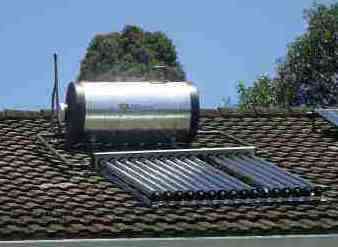
I have no experience of donkey boilers but I gather they work well but there’s some schlep; and no instant hot-water. We did toy with the idea of propane for a while but I am glad we decided against it; it also contributes to the greenhouse gases.
Quite a lot of people use heat-exchangers and
they perhaps should be considered; but they also require electricity and are
noisy. Not everyone is happy.
That leaves you with vacuum-tubes and photovoltaic panels for heating your water. We have both and they too have their pluses and some difficulties.
It’s now fifteen years since we installed our first vacuum-tubes; they have worked well and the water may boil on a hot day. I think they are king of the road but they are expensive. A severe hailstorm can smash the glass though we have not had a problem; but very little infrared light gets through thick cloud.
That geyser holds enough for two days for a small family but on the third it's luke warm.
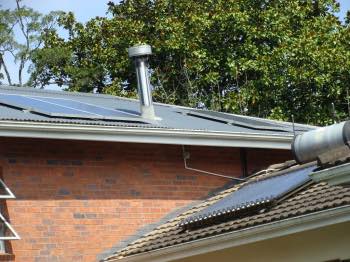
There is another possibility. We now have the option of supplementing our geyser with electricity either from mains in wet-weather or from our photovoltaic panels when it’s sunny.
That geyser must absolutely not be in the ceiling; flooding has been experienced by most of us at least once at great expense. It should be placed on the roof above the vacuum tubes for the thermo-syphon to work.
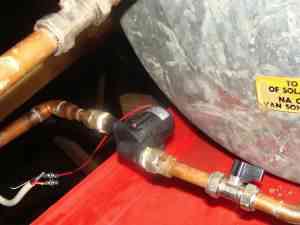
Those little solar pumps that drive the hot water from the vacuum tubes to the geyser are in theory workable but our experience is that they are horrible; noisy, expensive and prone to leaking. We have that T-shirt; a flooded ceiling.
Put your geyser on the roof and not in the ceiling; then you won't need the little solar pump. The thermo-syphon works perfectly well; hot water rises.
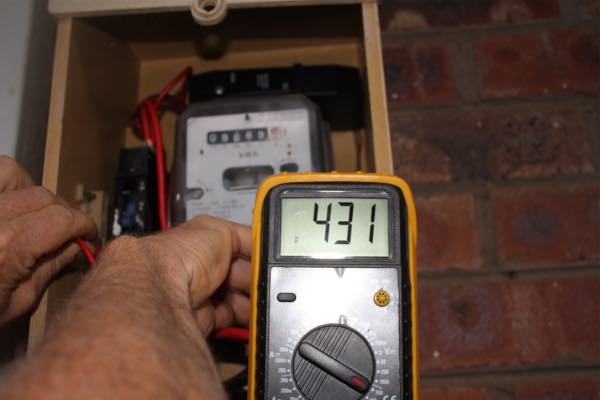 Regular voltage in South Africa is 220V.
Regular voltage in South Africa is 220V.We remain connected to the grid, on prepaid but with the main breaker switched firmly off; that surge, courtesy of the incompetents sent by City Hall to install a new transformer is not readily forgotten. It caused massive damage down our street. Only once in the last eight-months have we used utility power when guests came to stay; and were very glad to have had it.
Stay connected to the grid if you possibly can; for the present. Transmission charges probably lie ahead.
For the rest once the batteries are charged, you can use any surplus power to heat water; that means at least an extra kilowatt of PV panels. When installing a new geyser, do consider an induction element.
Woodstoves
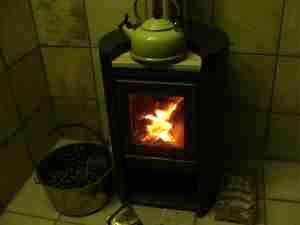
And then there are wood stoves that are becoming increasingly popular. They are turboed, extremely efficient and relatively clean-burning. Fallen and sawn trees abound for fuel; they are usually just dumped. You can store the hot water in thermos flasks overnight for coffee in the morning.
Global warming
With new technology from huge wind turbines, photovoltaic panels and E-cars we really can beat this monster called Global Warming; so that our grandchildren will have a habitable planet to live on. It will mean accepting that the skyline and our rooves may be dotted with clutter that is less than pleasing to our eyes.
If your neighbours and corporate body will not accept that, then it’s time to start raising merry-hell. Otherwise our offspring are truly faced with the grim prospect of the "Late, Great Planet Earth." They will stomp on our graves.
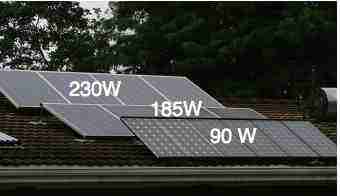
Many years ago my in-laws had a magnificent window that looked out onto Champagne Castle. Initially we ogled the mountain daily but within a month or two it became blasé; we only occasionally gave it a second glance. If that is true of something truly stunningly beautiful, then within a few weeks we will hardly notice those solar panels and the geyser next door.
From a religious perspective it’s time we started to contemplate the sacred trust that is laid upon our shoulders to care for the world. As told in the Creation story, “And God saw everything that he had made and behold, it was good.”
It is no longer good and rapidly becoming worse; it behooves us to take stock. Innovative ways of heating water are important.
Cooking at our green home
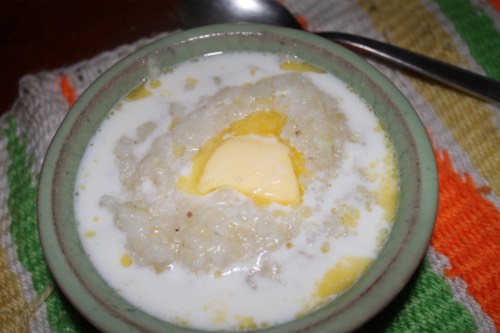 The woodstove provides gentle slow heat
The woodstove provides gentle slow heatMost of the cooking at our green home is done via electricity produced gratis by our solar generator; when the sun is shining and lesser amounts at night after a bright day. The large inverter will easily provide power for the oven, bread-machine and dishwasher.
When the weather is cold and dull then our woodstove comes into its own; reluctant to bring water to the boil, it is a wonderful slow-cooker for a soup or stew. It provides the steady, gentle heat needed to prepare wholemeal grits.
Gas is rarely used but it provides an important backup during inclement weather to supply us with hot water in the home; the other option is a very large bank of lithium batteries.
Lead pipes
There is no safe level of lead; and hot water is particularly prone to having the dissolved heavy metal. It is associated with developmental deficits, chronic kidney disease and neurological complications[2].
Research shows that 68% of children in Chicago where I and my family lived for four years, are still exposed to lead-contaminated water.
Those who are harvesting the rain have little exposure to the wide variety of toxic contaminants in municipal tap water.
Hot water in the home
Hot water in the home is one of the non-negotiables. It can be provided courtesy of Mr Golden Sun for most of the year but gas, a wood stove or the electrical utility will certainly be needed occasionally as a backup.
When browsing use right click and "Open Link in New Tab" or you may get a bad gateway signal.
Newsletter
Our newsletter is entitled "create a cyan zone" at your home, preserving both yourself and Mother Earth for future generations; and the family too, of course. We promise not to spam you with daily emails promoting various products. You may get an occasional nudge to buy one of my books.
Here are the back issues.
- Lifestyle and ideal body weight
- What are ultra-processed foods?
- Investing in long-term health
- Diseases from plastic exposure
- Intensive lifestyle management for obesity has limited value
- A world largely devoid of Parkinson's Disease
- The impact of friendly bacteria in the tum on the prevention of cancer
- There's a hole in the bucket
- Everyone is talking about weight loss drugs
- Pull the sweet tooth
- If you suffer from heartburn plant a susu
- Refined maize meal and stunting
- Should agriculture and industry get priority for water and electricity?
- Nature is calling
- Mill your own flour
- Bake your own sourdough bread
- Microplastics from our water
- Alternative types of water storage
- Wear your clothes out
- Comfort foods
- Create a bee-friendly environment
- Go to bed slightly hungry
- Keep bees
- Blue zone folk are religious
- Reduce plastic waste
- Family is important
- What can go in compost?
- Grow broad beans for longevity
- Harvest and store sunshine
- Blue zone exercise
- Harvest and store your rainwater
- Create a cyan zone at your home
Did you find this page interesting? How about forwarding it to a friendly book or food junkie? Better still, a social media tick would help.
- Bernard Preston homepage
- Our green solar power
- Hot Water in the Home
Address:
56 Groenekloof Rd,
Hilton, KZN
South Africa
Website:
https://www.bernard-preston.com